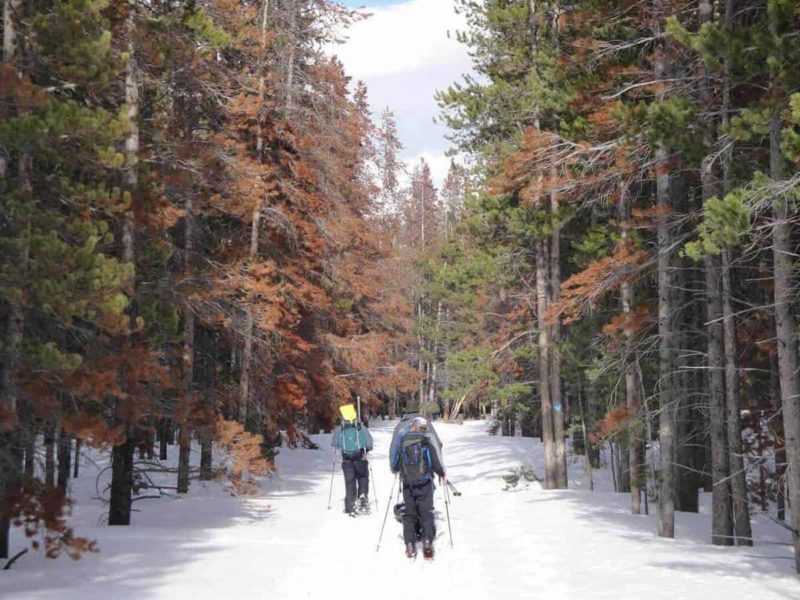Mountain pine beetle populations have exploded over the past decade due to warmer temperatures and drier summers, and these insects have infected and killed thousands of acres of western pine forests. Researchers have predicted that as trees died, streamflow would increase because fewer trees would take up water through their roots.
A recent study by University of Utah geology and geophysics professor Paul Brooks and his colleagues in Arizona, Colorado and Idaho, found that if too many trees die, compensatory processes kick in and may actually reduce water availability. When large areas of trees die, the forest floor becomes sunnier, warmer and windier, which causes winter snow and summer rain to evaporate rather than slowly recharging groundwater.
The bad news is that the loss of so many trees may not help alleviate the long-term drought in the West as many have hoped. The good news is that researchers can use the new understanding of forest water cycle to manage healthier forests that are more resistant to drought but still supply water to agriculture and cities downstream.
This is the first empirical evaluation of streamflow response to widespread tree mortality from mountain pine beetles in more than 30 years and is the largest study of its kind, says Brooks.
Brooks presented this research at the American Geophysical Union’s annual meeting this week in San Francisco. The AGU annual meeting is the largest Earth and space science meeting in the world.
If our reporting has informed or inspired you, please consider making a donation. Every contribution, no matter the size, empowers us to continue delivering accurate, engaging, and trustworthy science and medical news. Independent journalism requires time, effort, and resources—your support ensures we can keep uncovering the stories that matter most to you.
Join us in making knowledge accessible and impactful. Thank you for standing with us!

